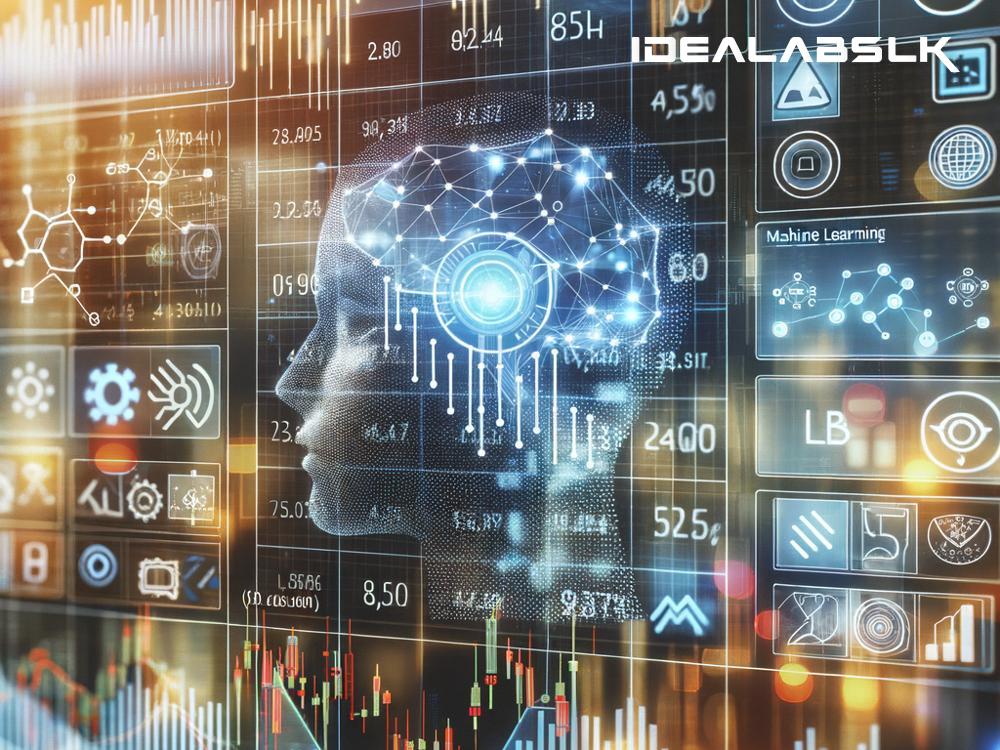AI for Trading: A New Era in the Stock Market
The world of stock trading is evolving at an incredible pace, and at the heart of this transformation is the powerful duo of big data and machine learning. These advanced technologies are reshaping how individuals and institutions approach the stock market, making trading strategies more efficient and potentially more profitable. Let's dive into how AI is changing the face of trading.
The Rise of AI in Trading
Trading stocks has traditionally been about understanding markets through research, intuition, and sometimes, a bit of luck. However, with the advent of AI, the approach to trading is becoming more data-driven. AI, particularly through machine learning and big data analytics, can sift through vast amounts of financial data at speeds and depths no human can match. This capability is changing how traders make decisions, manage risks, and predict market movements.
Understanding Big Data and Machine Learning
Before we get further, let’s break down the terms 'big data' and 'machine learning.' Big data refers to the enormous volumes of information generated every second from various sources like social media, transaction records, and market indicators. Machine Learning, a subset of AI, involves algorithms learning from this data, identifying patterns, and making decisions with minimal human intervention.
How AI is Revolutionizing Stock Trading
-
Predictive Analytics: AI systems analyze historical and real-time data to predict future market movements. These predictions can guide traders on when to buy or sell shares for maximum profit.
-
Risk Management: AI can also identify potential risks by analyzing market trends and news. This helps traders and investment firms to make more informed decisions, minimizing losses.
-
Automated Trading: Known as algorithmic trading, this involves AI systems executing trades at the best possible prices without human intervention. These algorithms can operate round the clock, ensuring no opportunity is missed.
-
Sentiment Analysis: AI tools can gauge public sentiment towards a particular stock by analyzing vast amounts of data from social media and news sources. This sentiment analysis can be a powerful indicator of a stock’s future performance.
-
Portfolio Management: AI can assist investors in managing their portfolios by suggesting adjustments based on market conditions, risk tolerance, and investment goals. This personalized advice makes portfolio management more efficient.
The Benefits of AI in Trading
- Speed: AI systems can process and analyze data much faster than a human can, allowing for quicker decision-making.
- Accuracy: By learning from historical data, AI can make more accurate predictions about market trends and stock performance.
- Efficiency: Automated trading removes the possibility of human error and increases transaction speed, making trading more efficient.
- Personalization: AI can offer personalized trading and investment strategies based on individual risk profiles and objectives.
The Challenges and Concerns
While AI in trading offers numerous benefits, it's not without its challenges. One concern is the potential for job displacement in the financial sector. As AI systems become more capable, the need for human traders and analysts may decrease. Additionally, there's the risk of over-reliance on technology, which could lead to systemic vulnerabilities if these AI systems fail or are manipulated.
The Future of AI in Stock Trading
The integration of AI in stock trading is still in its early stages, but it’s clear that its influence is growing rapidly. As technology advances, we can expect AI to become even more sophisticated, offering deeper insights and making stock trading more accessible to the average person. However, it's important to proceed with caution and ensure that as we embrace the benefits of AI, we also address the ethical and practical challenges it presents.
Conclusion
AI is undeniably transforming stock trading, leveraging big data and machine learning to make trading more predictive, efficient, and personalized. While the future looks promising, it's essential to balance the enthusiasm for these technologies with a cautious approach. By doing so, traders, investors, and the financial industry as a whole can harness the power of AI to not only achieve financial success but also ensure the stability and integrity of the markets.
Stock trading, thanks to AI, is no longer just about gut feeling or intuitions. It's becoming a precise science, propelled by data and algorithms. As we stand on the brink of a new era in trading, one thing is clear: the fusion of AI, big data, and machine learning is not just changing the game; it's redefining it.

